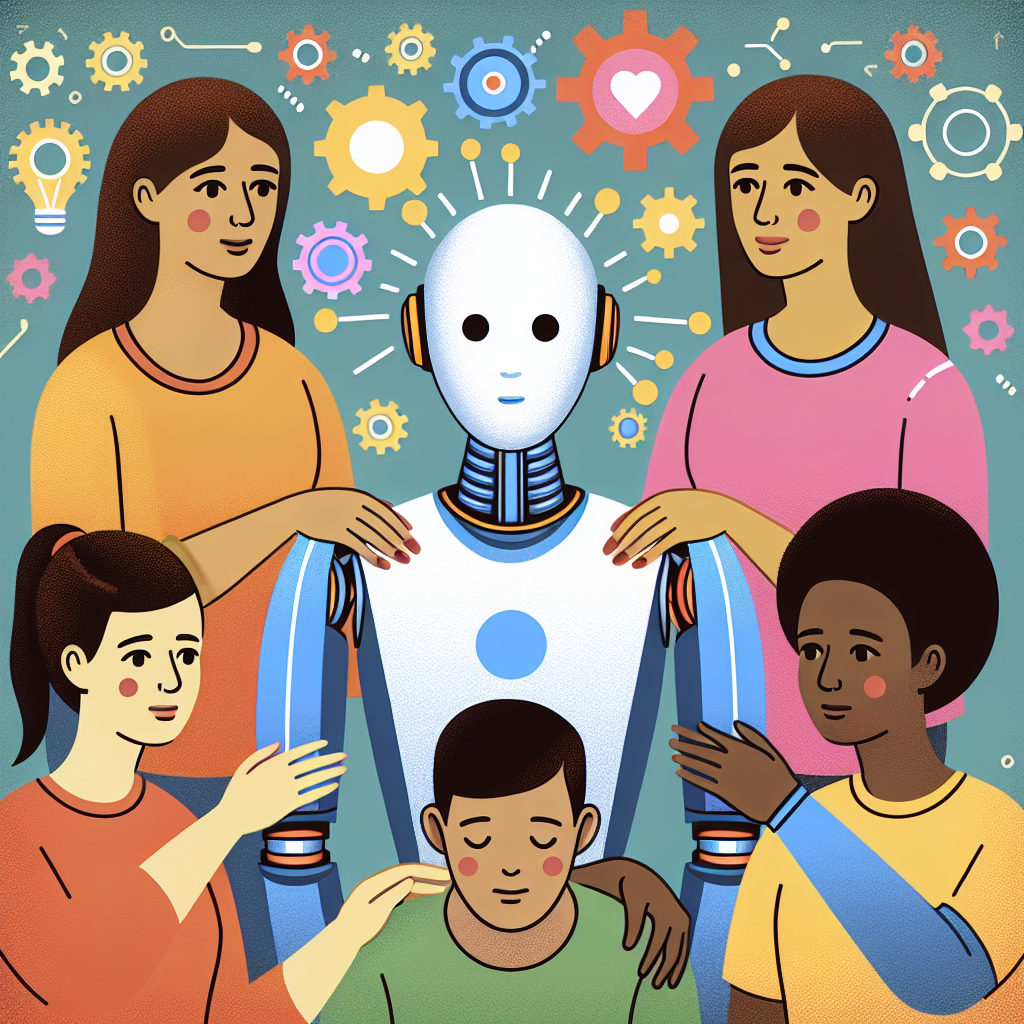The Role of AI in Supporting Students with Mental Health Challenges
Mental health challenges among students have been on the rise in recent years. The pressures of academic performance, social relationships, and extracurricular activities can take a toll on students’ mental well-being. In light of this, many educational institutions are looking for innovative ways to support their students’ mental health.
One such innovation is the use of artificial intelligence (AI) in providing mental health support to students. AI technologies have the potential to revolutionize the way mental health services are delivered, making them more accessible, personalized, and effective. In this article, we will explore the role of AI in supporting students with mental health challenges and how it can benefit both students and educational institutions.
Benefits of AI in Supporting Students with Mental Health Challenges
1. Accessibility: One of the biggest advantages of using AI in mental health support is its accessibility. AI-powered tools can be accessed anytime, anywhere, allowing students to seek help whenever they need it. This is especially important for students who may not have access to traditional mental health services due to time constraints, stigma, or lack of resources.
2. Personalization: AI technologies can provide personalized support to students based on their individual needs and preferences. By analyzing data such as students’ behavior patterns, emotions, and responses to different interventions, AI systems can offer tailored recommendations and interventions to help students manage their mental health challenges more effectively.
3. Early intervention: AI can also play a crucial role in early intervention for students at risk of developing mental health issues. By monitoring students’ digital footprints, such as social media posts, online searches, and communication patterns, AI systems can identify warning signs of mental health problems and alert school counselors or mental health professionals to intervene before the situation escalates.
4. 24/7 support: AI-powered chatbots and virtual assistants can provide students with round-the-clock support for their mental health concerns. These tools can engage students in conversations, offer resources and coping strategies, and provide real-time feedback and support when needed. This continuous support can help students feel more connected and supported, even outside of regular counseling hours.
5. Data-driven insights: AI can analyze large amounts of data to identify trends, patterns, and insights related to students’ mental health. By tracking students’ progress, outcomes, and engagement with mental health services, AI systems can help educational institutions make informed decisions about resource allocation, program effectiveness, and interventions for students with mental health challenges.
Common FAQs about AI in Supporting Students with Mental Health Challenges
Q: How can AI be used to support students with mental health challenges?
A: AI can be used in various ways to support students with mental health challenges, such as providing personalized recommendations, early intervention, 24/7 support through chatbots, and data-driven insights for better decision-making.
Q: Are AI-powered tools effective in supporting students’ mental health?
A: Research has shown that AI-powered tools can be effective in supporting students’ mental health by providing accessible, personalized, and continuous support. However, it is essential to combine AI technologies with human intervention and oversight to ensure the best outcomes for students.
Q: Are there any privacy concerns associated with using AI in mental health support?
A: Privacy concerns are a valid consideration when using AI in mental health support, as these technologies involve collecting and analyzing sensitive data about students’ mental health. Educational institutions must adhere to strict data protection regulations and ensure that students’ privacy and confidentiality are maintained at all times.
Q: How can educational institutions implement AI in supporting students with mental health challenges?
A: Educational institutions can implement AI in supporting students with mental health challenges by partnering with AI developers, integrating AI-powered tools into existing mental health services, training staff on how to use AI technologies effectively, and monitoring the impact of AI interventions on students’ mental health outcomes.
Q: What are some examples of AI-powered tools for mental health support?
A: Some examples of AI-powered tools for mental health support include chatbots, virtual therapists, mood tracking apps, predictive analytics tools, and cognitive behavioral therapy programs. These tools can help students manage stress, anxiety, depression, and other mental health challenges more effectively.
In conclusion, AI has the potential to play a significant role in supporting students with mental health challenges by providing accessible, personalized, and effective interventions. By leveraging AI technologies, educational institutions can improve the mental well-being of their students, enhance the quality of mental health services, and create a more supportive and inclusive learning environment for all.

